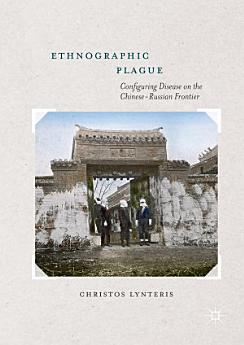Ethnographic Plague: Configuring Disease on the Chinese-Russian Frontier
Jul 2016 · Springer
Ebook
199
Pages
reportRatings and reviews aren’t verified Learn More
About this ebook
Challenging the concept that since the discovery of the plague bacillus in 1894 the study of the disease was dominated by bacteriology, Ethnographic Plague argues for the role of ethnography as a vital contributor to the configuration of plague at the turn of the nineteenth century. With a focus on research on the Chinese-Russian frontier, where a series of pneumonic plague epidemics shook the Chinese, Russian and Japanese Empires, this book examines how native Mongols and Buryats came to be understood as holding a traditional knowledge of the disease. Exploring the forging and consequences of this alluring theory, this book seeks to understand medical fascination with culture, so as to underline the limitations of the employment of the latter as an explanatory category in the context of infectious disease epidemics, such as the recent SARS and Ebola outbreaks.
About the author
Christos Lynteris is a social anthropologist working on biopolitical and visual aspects of infectious disease epidemics. He is Senior Research Associate at CRASSH, University of Cambridge, UK, and Principal Investigator of the European Research Council funded project Visual Representations of the Third Plague Pandemic. He is also the author of The Spirit of Selflessness in Maoist China (2012).
Rate this ebook
Tell us what you think.
Reading information
Smartphones and tablets
Install the Google Play Books app for Android and iPad/iPhone. It syncs automatically with your account and allows you to read online or offline wherever you are.
Laptops and computers
You can listen to audiobooks purchased on Google Play using your computer's web browser.
eReaders and other devices
To read on e-ink devices like Kobo eReaders, you'll need to download a file and transfer it to your device. Follow the detailed Help Center instructions to transfer the files to supported eReaders.





